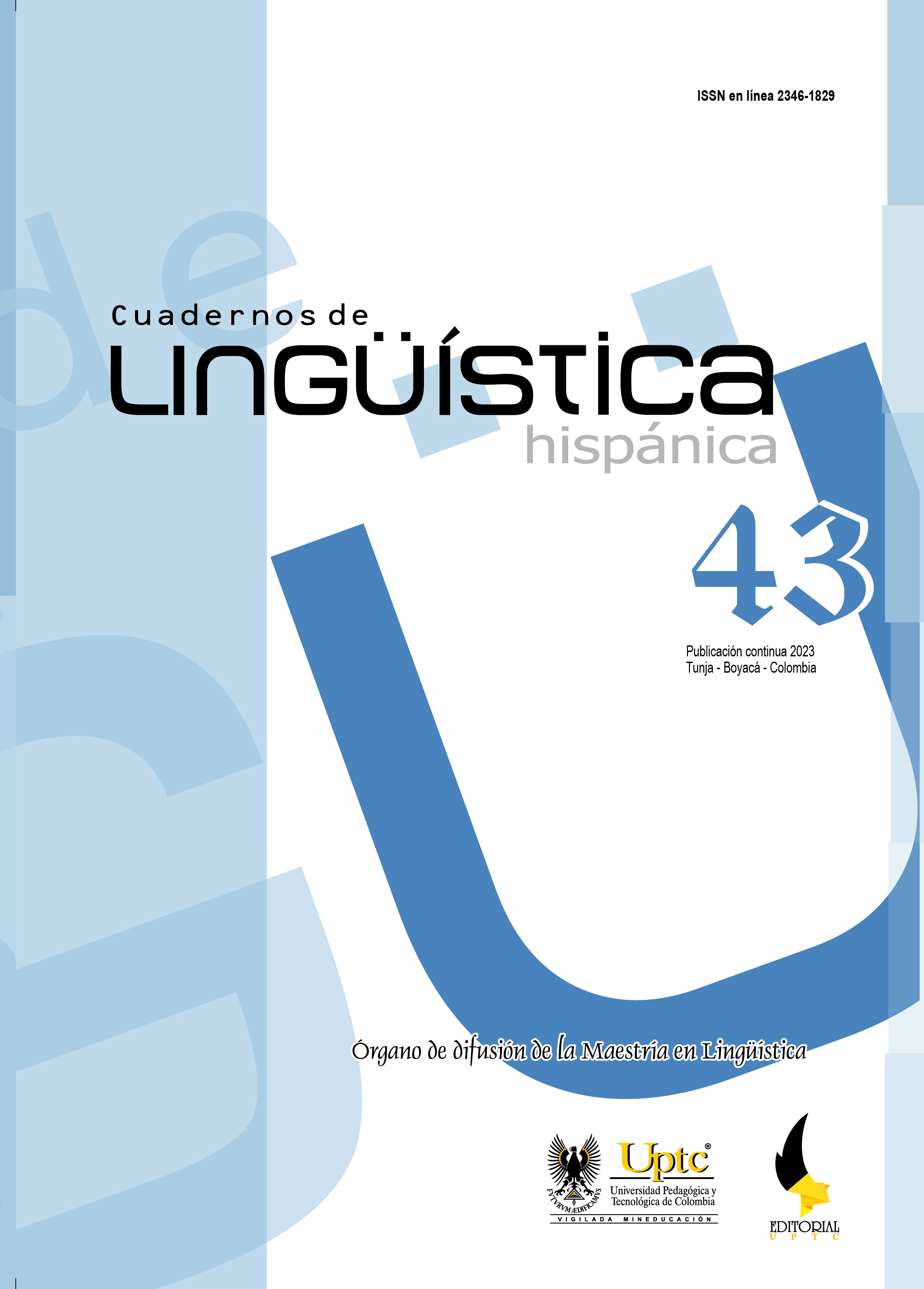Pedagogical experiences and the creation of fables in the training of future teachers

Abstract
This article describes the stages of fable creation by future FFL teachers inColombia, based on the observation of school situations during the development of their pedagogical practices. The methodology used to analyze a corpus of twentytwo created texts is included, which made it possible to identify the most recurrent problems in the classroom and their direct relationship with the writing process, taking into account the characteristics of the literary genre fable. This article describes the stages of fable creation by future FFL teachers in Colombia, based on the observation of school situations during the development of their pedagogical practices. The methodology used to analyze a corpus of twenty-two created texts is included, which made it possible to identify the most recurrent problems in the classroom and their direct relationship with the writing process, taking into account the characteristics of the literary genre fable.
Keywords
Training of language teachers, teaching experience, FFL teaching for children, literary creation
References
- Artois, L. (2017). La littérature en FLE- Une étude de cas de la pratique en Flandre. Universidad de Gante, Gante, Bélgica: [Tesis de Maestría:Master of Arts in het vertalen: combinatie van ten minste twee talen: Nederlands, Engels, Frans]. Consulté le 2022, sur https://lib.ugent.be/fulltxt/RUG01/002/349/018/RUG01- 002349018_2017_0001_AC.pdf
- Fiévet, M. (2013). Littérature en classe de FLE. Paris: CLE International.
- Galani, M.-E. (2010). Privilégier le texte littéraire en classe de FLE. (in:)La place de la littérature dans l’enseignement du FLE. Actes du colloque international des 4 et 5 juin 2009, Fridériki Tabaki-Iona, Argyro Proscolli, Kyriakos Forakis (éds) (pp. 261-271). Athènes: Université d’Athènes.
- Marais, O. (2009). Fil d’Ariane 6e. Paris: Didier.
- Mbembo, L.M.(2017). La fable : une didactique de la morale sociale ou un genre littéraire ? (in:)Journal of Philology and intercultural Education, vol II, No. 2 (pp. 83-94). Romania : Military Technical Academy Publishing House Bucharest. Recuperado de file:///C:/Users/Usuario/Downloads/La_fable_ une_didactique_de_la_morale_so.pdf
- Pardo Segura, M. (2006). Contenus de Littérature francophone destinée aux enfants. Programas académicos - Escuela de Idiomas. Tunja, Boyacá, Colombia: UPTC.
- Pardo Segura, M. (2018). FRANÇAIS LANGUE ARDENTE Le français pour et par la diversité et l’éducation plurilingue et interculturelle. L’interculturel à la portée des enfants colombiens. V, pp. 299-322. Liège - Fandène, Sénégal (typographie, infographie): Fédération Internationale des Professeurs de Français.
- Pardo Segura, M. (2023). L’apprenant dans l’enseignement et dans l’apprentissage des langues. Dans É. A.-E. Be (Éd.), Impact de l’apprentissage de la culture sur l’apprenant en langues. Collection Proximités- Didactique, pp. 71-82. Belgique: EME.
- Séoud, A. (2010). L’enseignement de la littérature en classe de FLE. De l’explication de texte à la lecture. La place de la littérature dans l’enseignement du FLE. Actes du Colloque International des 4 et 5 juin 2009 (pp. 60-70). Athènes: ridériki Tabaki-Iona, Argyro Proscolli, Kyriakos Forakis (éds),Université d’Athènes. Recuperado de https://www.academia.edu/41497714/La_place_ de_la_litt%C3%A9rature_dans_lenseignement_du_FLE
- Vigner, G. (2012). Écrire en FLE : Quel enseignement pour quel apprentissage ? Le
- Francais dans le Monde, 16-31.
